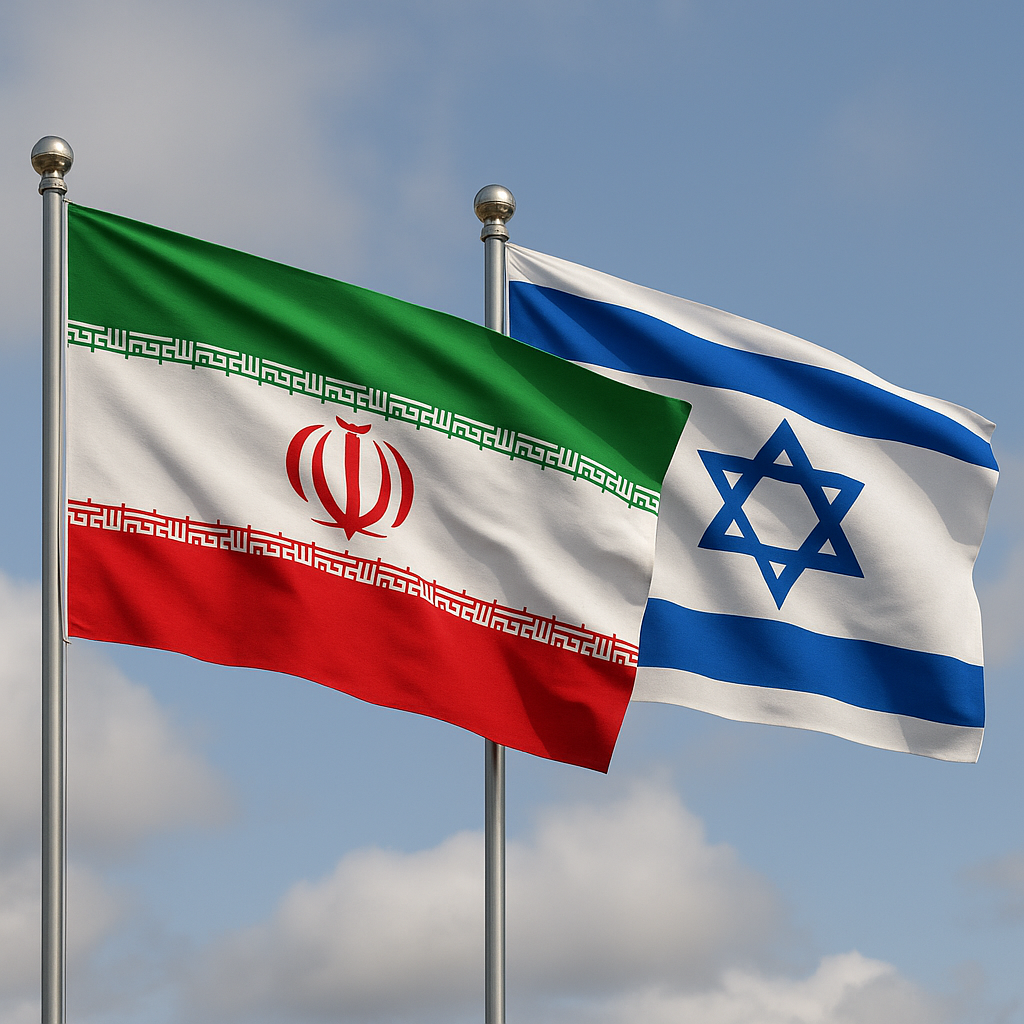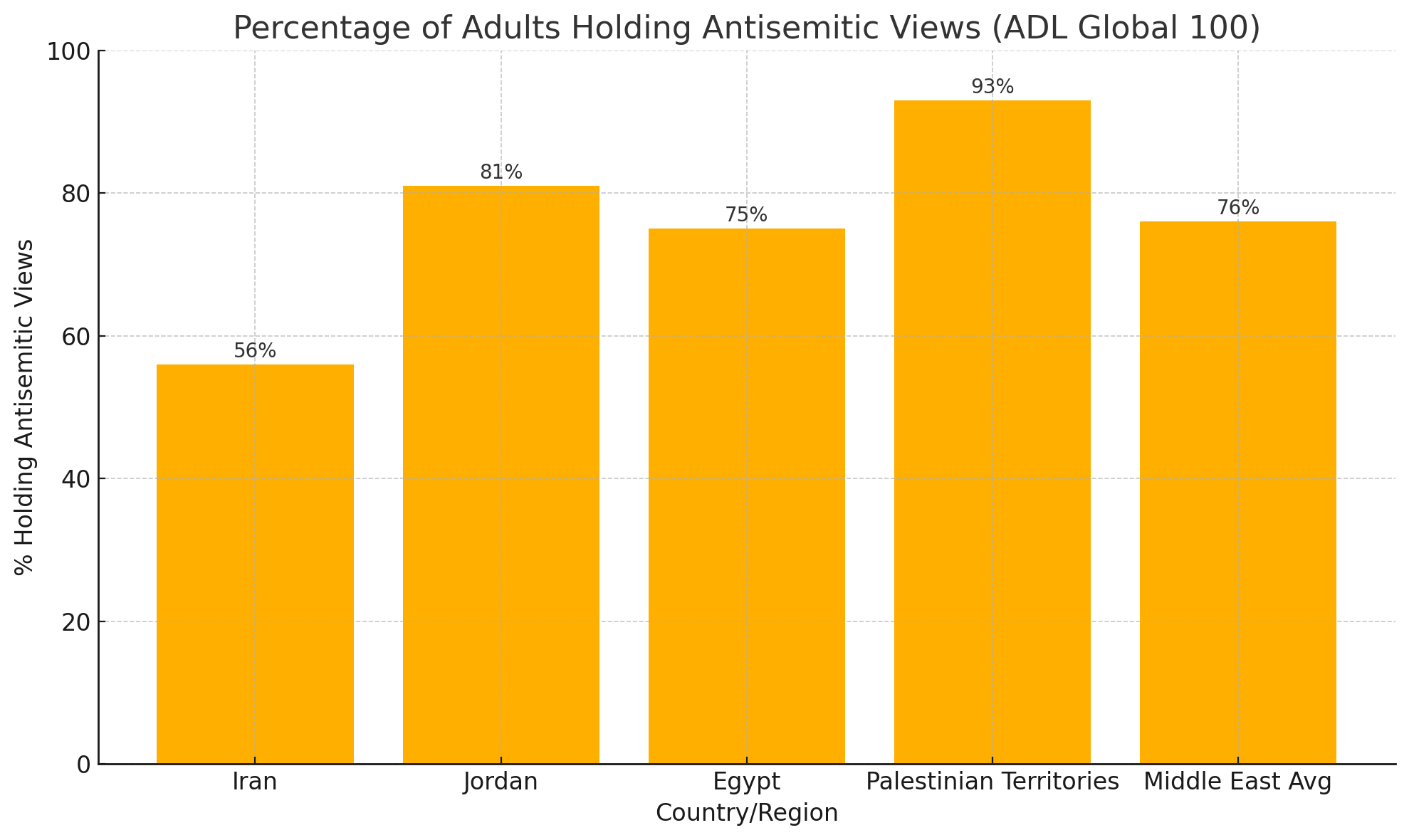Surprising Data: Iran Least Antisemitic in Middle East
Amichai Chikli points to new data from the ADL, highlighting a surprising divide between the Iranian regime’s hatred and the public’s relative moderation

In a surprising revelation, Israeli Diaspora Affairs Minister Amichai Chikli highlighted data indicating that Iran exhibits the lowest levels of antisemitic attitudes in the Middle East. This assertion is based on the Anti-Defamation League's (ADL) Global 100 Index, which found that approximately 56% of Iranian adults harbor antisemitic beliefs, a figure notably lower than in neighboring countries like Jordan and Egypt, where rates exceed 70% .(Wikipedia)
The ADL's Global 100 Index, encompassing over 58,000 interviews across 103 countries, assesses antisemitic attitudes by gauging agreement with 11 common stereotypes about Jews. A respondent is considered to hold antisemitic views if they affirm six or more of these stereotypes. While the global average stands at 46%, the Middle East and North Africa region reports a staggering 76% .(ADL)

Minister Chikli emphasized the distinction between the Iranian regime's official stance and the sentiments of its populace. "The Iranian regime is deeply antisemitic," he acknowledged, "but the Iranian people, based on the data, are significantly less so. That distinction matters."
This nuanced perspective emerges amid a global surge in antisemitism. In 2024, the ADL recorded 9,354 antisemitic incidents in the U.S. alone, marking an almost 900% increase over the past decade . Notably, 58% of these incidents were linked to anti-Israel sentiments, particularly following the October 7, 2023, Hamas attack on Israel .(Axios)
The ADL's findings also reveal a concerning trend among younger demographics. Approximately 50% of individuals under 35 hold antisemitic views, and only 39% recognize the Holocaust as historically accurate, compared to 48% among all respondents .
Chikli's remarks invite a reevaluation of how antisemitism is perceived and addressed globally. By distinguishing between governmental policies and public attitudes, especially in nations like Iran, policymakers and Jewish communities can better tailor their strategies to combat antisemitism and foster understanding.